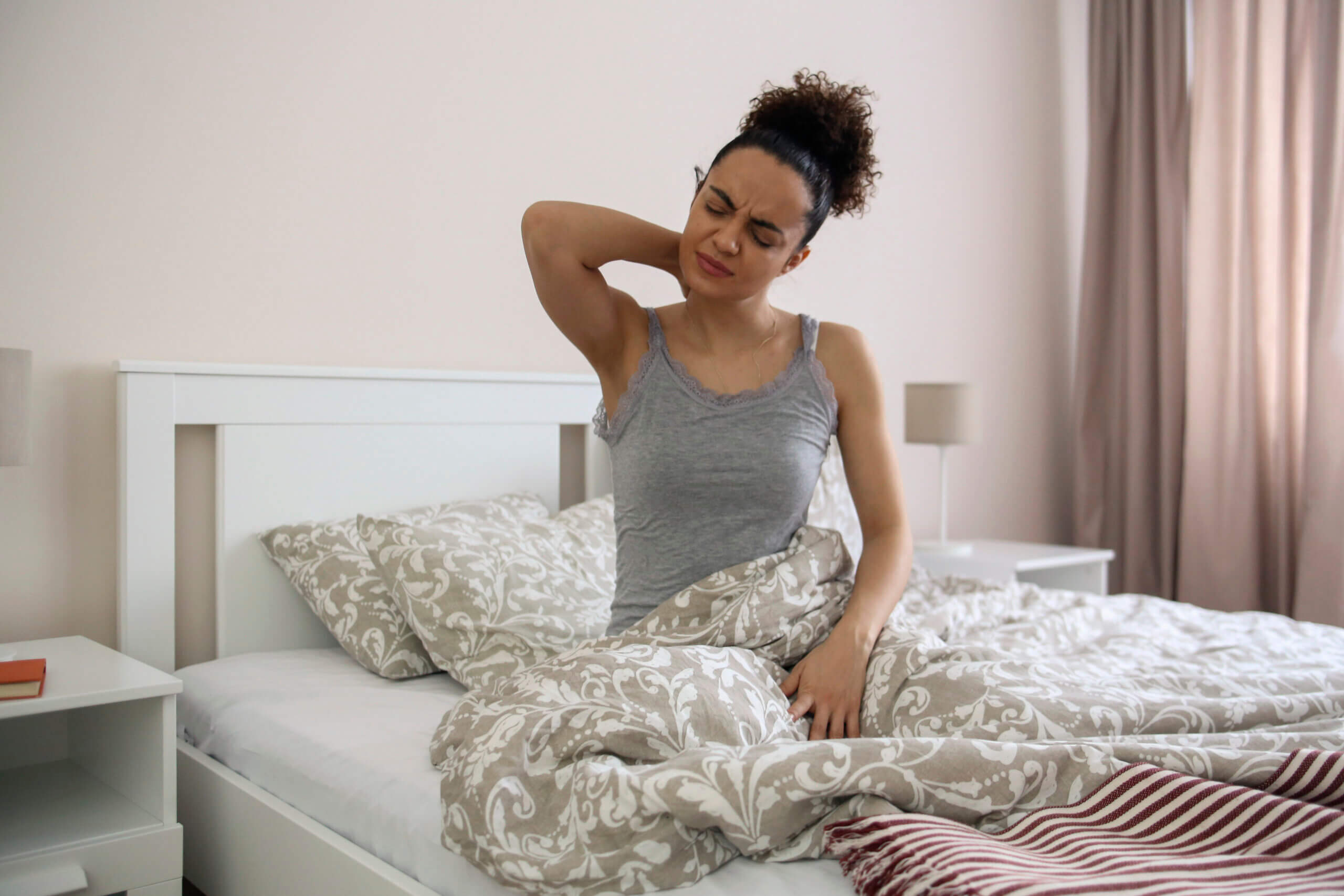Even in the absence of having suffered a traumatic injury or being ill, many people wake up with disturbing symptoms, including joint pain, muscle aches, numbness, tingling, or restricted mobility. At Long Island Spine Rehabilitation Medicine, our doctors know that such symptoms may result from a number of causes, but are usually caused by sleeping in a position that stresses one or more of your body parts.
Why do I sleep in a position that causes me pain?
There are many reasons you may sleep in a less-than-optimal position. Some scientific studies say that we are programmed to sleep in a fetal position (the position most of us are in while in utero). Nonetheless, there are quite a number of variations that depend on habits ingrained by:
- Personal areas of weakness or soreness in our bodies
- The mattress or pillows we use
- Variations of light quality, temperature, and sounds in our sleeping space
- The position our sleep partner favors
No matter what position you sleep in, there is no need to wake up with pain. Our doctors can help you with a variety of therapeutic methods. No doubt the pain and related symptoms you are feeling can be alleviated by one or more of our traditional or complementary treatments which include:
- Acupuncture
- Platelet-rich plasma (PRP)
- Physical therapy
- Corticosteroid and analgesic injections
- Pulsed electromagnetic field (PEMF) therapy
All of the treatments our physiatrists use are holistic and nonsurgical, designed to make you feel better as quickly as possible without the risks of an operation.
Common Pains Caused by Sleeping in the Wrong Position
Although falling asleep on a lumpy mattress, on a couch that doesn’t permit you to turn over easily, in a chair without neck support, or with a bed partner who doesn’t leave you room to get comfortable — any of these can result in a miserable morning, due to pain, numbness or restricted mobility in your:
- Neck
- Wrist
- Arm
- Hand
- Shoulder
- Back
If any of these symptoms persist after simple home remedies like rest, icing or heat, or over-the-counter pain medication, it is time to contact one of our convenient Long Island offices to have your condition accurately diagnosed and properly treated.
Common Sleep-Related Injuries
Though a great many joints, nerves, muscles, and tendons can be affected by the way we sleep, some of the most common ailments our doctors see in our practice are:
- Rotator Cuff Impingement — occurs when the rotator cuff tendon is squeezed between the humerus bone and the scapula (shoulder bone) during side sleeping. If this tendon is compressed for a long period, the ongoing friction can result in bursitis, tendonitis, or a rotator cuff tear.
- Shoulder Bursitis — occurs when the bursae, the small fluid-filled sacs that cushion the bones and tendons of the shoulder, become inflamed due to side sleeping. This may result in pain, stiffness, weakness, and restricted mobility of the shoulder joint.
- Carpal Tunnel Syndrome occurs when the median nerve that passes from the armpit to the hand is compressed. This compression inflames the region, interfering with the sensation and movement of the wrist and forearm, and causing pain. Since the median nerve travels through the tube in the forearm known as the carpal tunnel, this ailment is known as “carpal tunnel syndrome.” Sleeping in the wrong position may contribute to the likelihood of developing carpal tunnel syndrome since flexing your hand in any direction for a prolonged period can place pressure on the median nerve.
- Osteoarthritis of the Shoulder is a degenerative condition that may be caused by aging and/or traumatic injury. When individuals favor one side for sleeping, a cartilage breakdown may occur in the acromioclavicular (AC) joint or in some other part of the shoulder, beginning the process of deterioration. Osteoarthritis of the shoulder may result in stiffness, painful clicking or popping, and pain that worsens with movement.
Contact Our Experienced Physiatrists Today for Help With Sleep-Related Pain
Why continue waking up in pain when our dedicated doctors are here to help? We have advanced diagnostic and treatment options readily available and are well-prepared to relieve your pain and restore complete function. Contact us now to discuss our broad range of nonsurgical therapies and see which are best for you.
